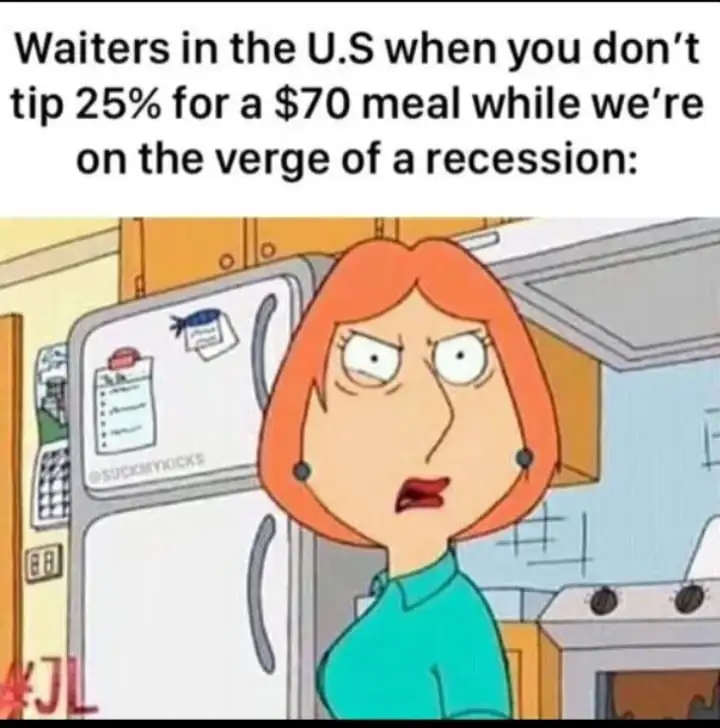Tipping culture npcs
Tipping culture npcs


Tipping culture npcs


You're viewing part of a thread.
As evidenced.
Your evidence had something to do with housing affordability, not quality of life. You clearly do not give a shit about their quality of life.
Also, I love how every study I provided is wrong and you, without a single bit of evidence, are right.
NONE of them were a study. Every one of them are articles that simply speculate... or use sources that AREN'T a study... Eg. the americanprogress one only cites US census information. Everything is "author's calculations" and the Author isn't a statistician.) A study is never actually sourced or presented.
Any time you want to provide evidence for your claim, go ahead.
And one of them literally talked about a CBO study.
Here is that study.
https://www.cbo.gov/system/files/2021-02/56975-Minimum-Wage.pdf
The number of people in poverty would be reduced by 0.9 million.
Any time you want to provide evidence for your claim, go ahead.
Your "evidence" is more than sufficient.
Effects on the Distribution of Family Income
The net effect of the Raise the Wage Act of 2021 on income would vary considerably among families. In 2025, 0.9 million fewer people would have income below the federal poverty thresholds, CBO estimates. Families’ real income would change in three main ways.
-For families with workers earning wages at or near the federal minimum, real income would increase. That effect would be concentrated in the lowest quintile, or fifth, of the distribution of family income.
-For families that lost employment because of the increase in the minimum wage, real income would fall. That effect would also be concentrated in the lowest quintile of the income distribution, but it would be smaller than the increase in real income just described
-For families that experienced a decline in business income or saw no change in their labor income but faced higher prices for goods and services, real income would fall. That effect would be concentrated in the highest quintile of the income distribution.
So over 0.9 million people would come out of poverty... But the what sounds like a nebulous "lesser" amount would go into worse poverty especially if you take the last item into account which they don't in the second point. Since they don't define how many... we're stuck at a gamble here. That's not an answer. You're basically asking to sacrifice a half million (or maybe even more! since they don't care to define it) to save .9 million.
Then they go on to say...
Effects on Prices
In CBO’s assessment, the Raise the Wage Act of 2021 would change the relative prices of goods and services. The largest price increases, relative to the average increase, would be for goods or services whose production required a larger-than-average share of low-wage work, such as food prepared in restaurants. For goods and services that used less low-wage labor in their supply chains, prices would rise less.
So prices for EVERYONE will go up for everything. Acknowledged. Which actually means people who are close... will suffer as well.
Effects on Interest Rates
In CBO’s assessment, the Raise the Wage Act of 2021 would cause interest rates to be slightly higher than they would have been otherwise over the 2021–2031 period
Net negative for everyone here as well... Especially those already in debt.
Yeah... reading through this briefly... it's validating everything I had already thought... You might "save" some people.... but at the cost of so much more. It's also proving the point that you can't be trust with what you say... you're effectively saying "if it saves one person" without realizing the cost of doing so to society overall, including those you purport to "save".
But at the very end...
Taken together, those differences led to differences in the reports’ projected effects on employment and family income. In the 2019 report, CBO estimated that employment would fall by 1.3 million workers in 2025; in this report, the estimated reduction is 1.4 million workers. The most important analytical change that led to that difference was CBO’s use of the mean rather than the median in determining its central estimates.
So save .9 million... but lose 1.4 million workers? This math doesn't add up. I'll have to read more into this report to get a better understanding of what they mean.
Also
The estimated number of people whose annual income would rise above the federal poverty thresholds in 2025 is smaller in the current report (0.9 million) than it was in the 2019 report (1.3 million). That difference stems from the changes in CBO’s baseline projections, from the changes in the policies’ timelines, and from the use of mean outcomes rather than outcomes generated by the median values of key inputs.
So the number is naturally going down over time on it's own?... So basically do nothing has dropped the number .4 million over 2 years... Nearly 50% of the number that you believe can be "saved" by raising minimum wage. That sounds like statisticians nightmare where the whole report gets thrown out because it's statistically irrelevant.
Shit just read some more... All of page 8 is a problem.
In 2025, when the minimum wage reached $15 per hour, employment would be reduced by 1.4 million workers (or 0.9 percent), according to CBO’s average estimate. In 2021, most workers who would not have a job because of the higher minimum wage would still be looking for work and hence be categorized as unemployed; by 2025, however, half of the 1.4 million people who would be jobless because of the bill would have dropped out of the labor force, CBO estimates. Young, less educated people would account for a disproportionate share of those reductions in employment.
If you think this is a positive answer to anything... I can't help you. We already have problems with this in some sectors (IT specifically as that's what I have the most experience with). It's hard to get into positions as they all want stupid high qualifications. Now that's going to get worse? Sign me up as hard against this legislation outright. You've actually convinced me to be against this more than I already was.
Edit: Also another case... people who are borderline and get benefits would likely lose their benefits... So their overall income may not increase much at all... you paper brings that up.. which I usually forget about.

Do you want to elaborate why you're downvoting me for reading the report given to me? Did I get something wrong? Care to actually contribute than just drive by downvoting?